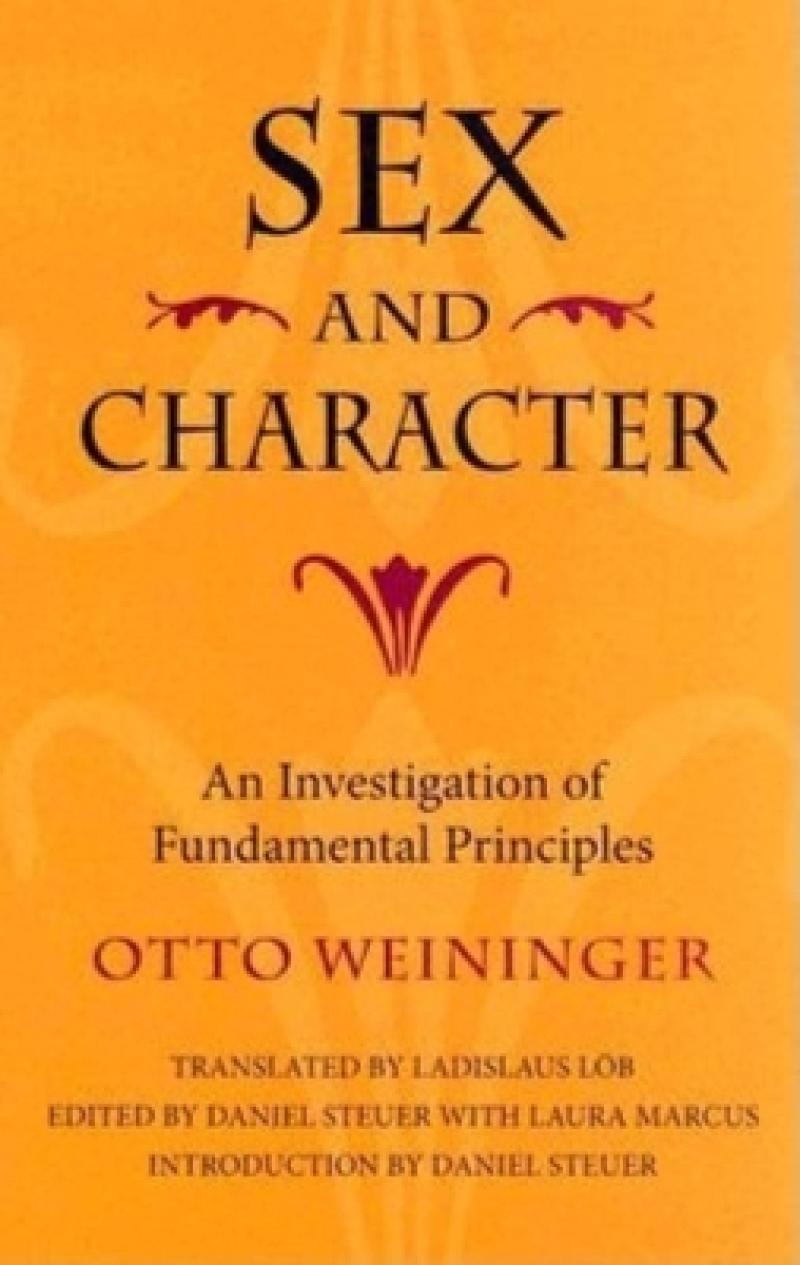<p>This long-awaited new translation of Austrian thinker Otto Weininger's masterwork, Sex and Character (1903), is simply splendid. Accurate, graceful, and complete—three qualities no other English translation can boast—it is light years beyond all previous translations. Why is this book a big deal, and why should one care about it? For one thing, because it encapsulates Viennese intellectual life around the turn of the 20th century insofar as it reflects the thinking of other intellectuals and artists—Freud, Kraus, and Broch, to mention three. But the more important reason is intrinsic: it raises questions about modernity, race, identity, gender, and fascism, questions that are still at the center of cultural debate. Those interested in European history and thought, cultural and literary studies, and race and gender theory will find this book indispensable. Summing Up: Essential. Upper-division undergraduates through faculty. —M. Uebel, University of TexasNovember 2005</p>
Choice
<p>Still often cited—but rarely read—as the locus classicus of the fin-de-siècle convergence of misogynistic and antisemitic discourses in the figure of the feminized Jew, O. Weininger's 1903 best-selling revised dissertation has found its first complete English translation. . . This edition affords the English-speaking reader the opportunity to better understand the claims . . . that Sex and Character is not just an encyclopedia of anti-Jewish and anti-female stereotypes, but of early twentieth century philosophic and scientific cultures as well. Recommended for scholars, graduate and advanced undergraduate students examining the underpinnings and undersides of modernity.</p>
Religious Studies Review
<p>[T]here are not that many great weird books. Sex and Character . . . is one of them. The appearance . . . of a definitive English translation published by Indiana University Press is a major cultural event. . .In short, Weininger's introspective exploration of the cosmic meaning of gender leads him to the depths of the anti-Semitic imagination. Which makes his book a kind of rough guide to the inner world of another Austrian figure who would later leave his mark on the world, Adolf Hitler. Twenty years ago, Gerald Steig, an Austrian writer, called Sex and Character 'the psychological-metaphysical prelude for National Socialism, including its variants.'. .</p>
Insde higher Ed
Otto Weininger's controversial book Sex and Character, first published in Vienna in 1903, is a prime example of the conflicting discourses central to its time: antisemitism, scientific racism and biologism, misogyny, the cult and crisis of masculinity, psychological introspection versus empiricism, German idealism, the women's movement and the idea of human emancipation, the quest for sexual liberation, and the debates about homosexuality. Combining rational reasoning with irrational outbursts, in the context of today's scholarship, Sex and Character speaks to issues of gender, race, cultural identity, the roots of Nazism, and the intellectual history of modernism and modern European culture. This new translation presents, for the first time, the entire text, including Weininger's extensive appendix with amplifications of the text and bibliographical references, in a reliable English translation, together with a substantial introduction that places the book in its cultural and historical context.
Contents
Acknowledgments
A Book That Won't Go Away: Otto Weininger's Sex and Character Daniel Steuer
Translator's Note Ladislaus Löb
Preface
First (Preparatory) Part: Sexual Diversity
Introduction
I. "Men" and "Women"
II. Arrhenoplasm and Thelyplasm
III. Laws of Sexual Attraction
IV. Homosexuality and Pederasty
V. Characterology and Morphology
VI. Emancipated Women
Second or Main Part: The Sexual Types
I. Man and Woman
II. Male and Female Sexuality
III. Male and Female Consciousness
IV. Endowment and Genius
V. Endowment and Memory
VI. Memory, Logic, Ethics
VII. Logic, Ethics, and the Self
VIII. The Problem of the Self and Genius
IX. Male and Female Psychology
X. Motherhood and Prostitution
XI. Eroticism and Aesthetics
XII. The Nature of Woman and Her Purpose in the Universe
XIII. Judaism
XIV. Woman and Humanity
Appendix: Additions and References
Index
. . . If the goal was to make accessible to an English readership a fascinating source documenting Viennese attitudes towards sexuality, gender equality, modernity and Jews at the turn of the last century, the volume is a resounding success and will surely find its way onto the reading lists of cultural history courses at undergraduate and graduate level.
Produktdetaljer
Biographical note
Ladislaus Löb is Emeritus Professor of German at the University of Sussex.
Daniel Steuer is Senior Lecturer in German in the School of Humanities, University of Sussex.
Laura Marcus is Reader in English in the School of Humanities, University of Sussex.
